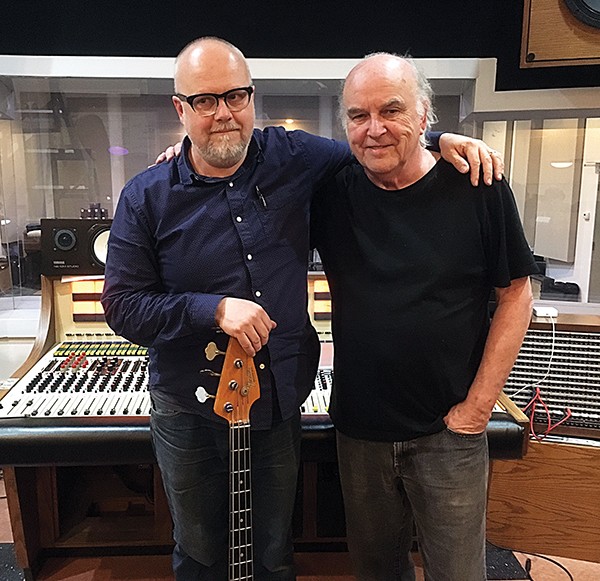This week marks a watershed moment in the local studio scene: On Monday, the owners of the new Memphis Magnetic Recording Company discovered that their freshly renovated building on Vance Avenue, near Downtown, had passed inspection and was ready for business. It’s news that many on the Memphis music scene have anticipated for some time. Producer/engineer Scott McEwen and studio designer Bob Suffolk have been working on the space for over a year and half, and, due to their past track records and known love of vintage gear, forging friendships and raising eyebrows all over town.
Suffolk, who’s lived in Dallas for many years, plans on relocating to the Bluff City. “Our tracking room’s huge. All the bands from Dallas — and we’ve got some great bands there — they just go to work in Nashville,” Suffolk says. “I keep telling the bands, ‘Stop driving through Memphis! Turn off, come see us. Stop driving to bloody Nashville!'” Indeed, the studio owners hope to add to the growing profile of Memphis as a recording destination in its own right, and their aesthetic fits right in with the existing, sometimes legendary facilities here.
 Alex Greene
Alex Greene
Scott McEwen & Bob Suffolk
“Our studio is brand-spanking new, although it’s done in what I call a purpose-built vintage style,” Suffolk says. “It’s all analog, though it has ProTools if needed, and it’s huge. It’s a performance tracking room. And with a vocal booth and a lounge. We hope to help bring Memphis to life again, because there are so many great musicians here. And so far we’ve had a tremendous response from a lot of people in the city. Scott and I just stuck our necks out. When I first saw this raggedy old building on Vance, I thought ‘Oh, dear.’ It was built in 1927. It’s been empty since 1954, and it was full of vagrants and all sorts of crap. It was nasty. We started from scratch. Self Tucker, the architects, have been helping us.”
Walking into the space does feel like a step back into the past, and it’s not just because of the decor. Over the past 20 years, McEwen has made a name for himself at his Nashville facility, Fry Pharmacy, where he’s been amassing vintage gear and perfecting his analog recording chops. But, feeling the pinch of rising costs there, he’s throwing in his lot with Memphis, a city that has loomed large in McEwen’s imagination since the 1990s.
“I love Doug Easley’s work. I used to live with Mark Ibold, the bass player for Pavement,” he says. “So I was listening to the records Doug and Davis McCain were making, and I realized Sonic Youth and Jon Spencer and all these guys were going to Memphis. I loved Doug’s work from afar. I feel like he put Memphis back on the map, for my generation. So he was really important to me. I feel lucky to call him a friend.”
Now McEwen hopes to bring his long list of clients, including J.D. McPherson, to Memphis with him. Like him, they tend to favor the indie/Americana side of things and have a taste for the richer sounds of analog and tube gear. He likes to point out that their primary board, a Sphere, “was the Grand Ole Opry’s mixing board, in the 1970s.” And Suffolk, for his part, harks back to the original glory days of analog studios, when the revolution on the horizon was not digital, but solid state electronics.
At 19, he was hired as the “tea boy” at London’s Pye Recording Studios. “The first session I did was bringing in tea for the Kinks. I remember I walked into Studio 1 with a tray of tea, and they were tracking. Ray Davies was on the harpsichord, and he looked up and stopped, and all the people in the upper booth looked at me and motioned, ‘Come up here.’ And I thought, ‘Oh, God, I’m such a bastard.’ And to this day, I’m still the tea boy. Tea boy and studio design.”
A lucky break gave him the chance to renovate London’s famous Trident Studios in the 1980s, and from there he’s worked on many such facilities. Now, as he and McEwen open up for business, they’re looking to bring more of that big studio sound to Memphis — and tea as well.

 Alex Greene
Alex Greene